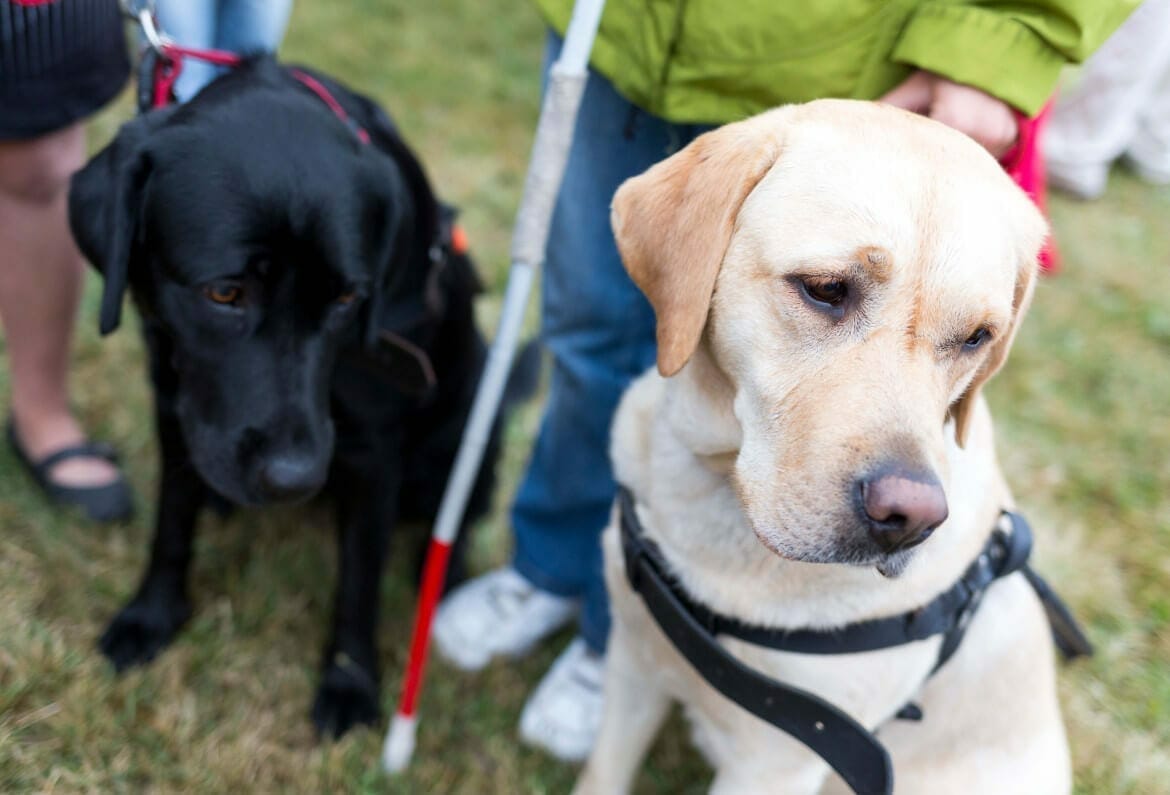
Dogs with Jobs
Nadia Crighton delves into the world of hardworking dogs, shedding light on the intensive training that enables them to excel in their vital roles.
Guide Dogs: A Journey of Training and Companionship
The journey to becoming a Guide Dog begins with basic puppy training. Across Australia, these young canines are raised in volunteer Puppy Raising homes for the first 12 months of their lives. Here, they receive essential socialization, attend Puppy Preschool, and learn fundamental commands such as sit, stay, and drop. At around 14 months, these dogs bid farewell to their foster families and embark on their official journey to become Guide Dogs.
An assessment of health and temperament determines their suitability for formal training, which consists of a rigorous 20-week program led by an instructor. During this period, they acquire an array of skills and become accustomed to navigating bustling and noisy environments. Key competencies include traveling on various forms of transport, identifying important landmarks like train stations and bus stops, and safely crossing roads. Following this rigorous training, the dogs undergo evaluations to assess their abilities before graduation.
Following their training, these dogs are carefully matched with the perfect handler, resulting in a strong bond of trust and companionship. Guide Dogs typically retire after eight to 10 years, and handlers can decide whether to keep them as beloved pets or arrange for them to be re-homed with a loving family.
Assistance Dogs: A Helping Paw in Day-to-Day Life
Similar to Guide Dogs, Assistance Dogs start their journey in the homes of foster carers. Here, they receive love and care until they are ready to begin their formal training. Assistance Dogs serve individuals with a range of disabilities, offering invaluable assistance in their daily activities. They undergo training to retrieve dropped items, carry specific objects, provide bracing and balancing support, offer pressure contact for comfort during stressful times, open and close items, and locate wandering individuals. After about six months of intensive training, they graduate and find placement in suitable homes. They play a crucial role in assisting people of all ages, including children dealing with conditions like Autism.
Police Dogs: Guardians of Law and Order
Many Police Dogs commence their intensive training during puppyhood, culminating in graduation at around 18 months of age. This training often takes place on specialized campuses, focusing on diverse tasks tailored to the dogs’ innate skills. These tasks may include search and rescue operations, victim recovery, deployment with the Armed Offenders Squad, and narcotic detection work. Detector dogs undergo training to recognize firearms, currency, and explosives.
Get the latest Pet Insider Tips & News
We offer award-winning* pet insurance policies to protect your furry friend’s health and wellbeing. Get a quote today and give your pets the care they deserve.
Archives
Categories
- Cat Care (64)
- Cats (1)
- Dog Care (124)
- Guides (28)
- Health and Nutrition (200)
- Lifestyle and Activities (219)
- Media Release (24)
- Pet Care (246)
- Rescue Dogs (1)

